Best Topical Ever is mostly known and used for a painless dental treatment. Usually, the patients like to be assured that their dental injection and treatment will be utterly painless, and undoubtedly, the best topical ever provides more comfort to the patients. With conventional topical, patients are afraid of getting their dental procedures done. However, the Best Topical Ever guarantees that our patients' gum is completely numb before the injections. With the Best Topical Ever, the dental anesthesia injection is no longer a concern for the patients because it makes the patient numb. The Best Topical Ever is beneficial to the point that injection is unnecessary in small activities. Hence the entire treatment becomes pain-free and comfortable.
There are two topical anesthetics: one is Profound from Steven's Pharmaceutical, and the second is The Best Topical Ever. Steven's Pharmaceutical is a mixture of 10% prilocaine, 10% lidocaine, and 4% tetracaine. It comes in both a regular (very viscous) and a light (runnier). The Best Topical Ever is a mixture of 10% lidocaine, 10% tetracaine, 2.5% prilocaine, and 2% phenylephrine. And it impresses to learn that both of these topical anesthetics seem to work like magic.
Applications of the Best Topical Ever
The Best Topical Ever is a kind of anesthetic used in orthodontics as an alternative to local infiltration for soft-tissue laser surgery, placement of temporary anchorage devices, and transmucosal alveolar micro-osteoperforation. The Best Topical Ever is fundamentally used for;
- Scaling and root planing
- Soft tissue and palatal procedures
- Pre-injection numbing
- Placement of orthodontic Temporary Anchorage Devices (TADs)
- Taking impressions and intra-oral radiographs
How Does the Best Topical Ever work?
The local anesthetics are predictably more concentrated than injectable anesthetics to promote diffusion after passing through the mucosa. Traditional topical anesthetics are in solution, cream, gel, and spray form. The conventional topical anesthetics mainly contain lidocaine or benzocaine as active ingredients. Eutectic mixtures, being a mixture of various topical anesthetics, has been proved to be more potent than other anesthetics. And the critical part is, dentists should be very careful that although hard, but topical anesthetics may induce allergic reactions or side effects as a result of an overdose. Hence, to avoid toxicity, they should be applied as a thin layer over a small area.
For better results, the professionals at our dental office situated at San Francisco, usually make the gingiva dry thoroughly with gauze before applying the topical. This results in removing the saliva and salivary proteins, which may play the role of hindrances to the medications within the topical. The topical then sit for 30-60 seconds to deeply penetrate the outer mucosa and affect the subepithelial nerve fibers. The professional now can pierce the tissue with the needle, which gives almost no sensation to the exposed area. After the injection, one needs to be sure to rinse the tissue thoroughly; else, the topical can lead to some sloughing of the mucosa if left on for a more extended period.
The products of Topical anesthetic are available in various forms, such as; sprays, solutions, gels, and ointments, and one needs to choose it per his/her use. Sprays can effectively block a broad surface, but persistent exposure raises the speculation for absorption into the circulatory system. It is seen that the spray anesthetics are suitable for use before oral radiographs and before taking impressions for dentures in patients having excessive vomiting reflex. Ointments and gels can relieve pain caused by local anesthetic injections.
Advantages of the Best Topical Ever
- As in dentistry, the Best Topical Ever is chiefly used to control local pain caused by needling, oral mucositis, placement of orthodontic bands, the vomiting reflex, and rubber-dam clamp placement. It helps in alleviating the pain sensation during the dental treatment on the peripheral nerves.
- Topical anesthetics are beneficial during dental treatment, as they reduce dental phobia, especially among kids, by soothing their distress and pain.
- Topical anesthetics reduce pain by controlling pain sensations through a blockade of signals that transmit from the peripheral sensory nerve fibers.
To summarize, the best topical ever is of excellent taste in comparison to other topicals available in the market. It comes in five different flavors, and it is highly useful for reducing discomfort, pain, and anxiety during dental procedures. The most amazing part is, only with the help of the best topical ever, surgery is done sans local anesthesia. This helps the patients to get rid of their fear and awe. It consists of Lidocaine (12.5%), Tetracaine (12.5%), Prilocaine(3%), Phenylephrine(3%), and these get easily absorbed through the tissues. The practitioners should be much alert of allergic reactions in all patients with hypersensitivities or neuropathies even though the topical anesthetics are safer than injections. The dentists should have a proper understanding of topical anesthetics to improve the quality of care. When using any anesthetic, providers should ask patients about allergies to esters, amides, or any components of the drug. By understanding these aspects of dental topical anesthetics, clinicians can help make dental procedures more comfortable while minimizing any adverse reactions.
All major dental and medical PPO insurances are accepted at Implants Pro Center™, San Francisco, which reduces your worry about the cost of any oral surgeries or dental implant treatment. We also have a tremendously caring and experienced staff who will provide life-long maintenance, care, and support. Implants Pro Center™, San Francisco, is also equipped with all the modern technologies like CEREC® CAD/CAM, VELscope Vx, CT-Scan, Intravenous Sedation, Platelet Rich Fibrin, etc. to provide nothing less than the best of services. You will be entirely at ease for any of your oral screening procedures. Call us at 415.481.0778, to schedule your free consultation.
